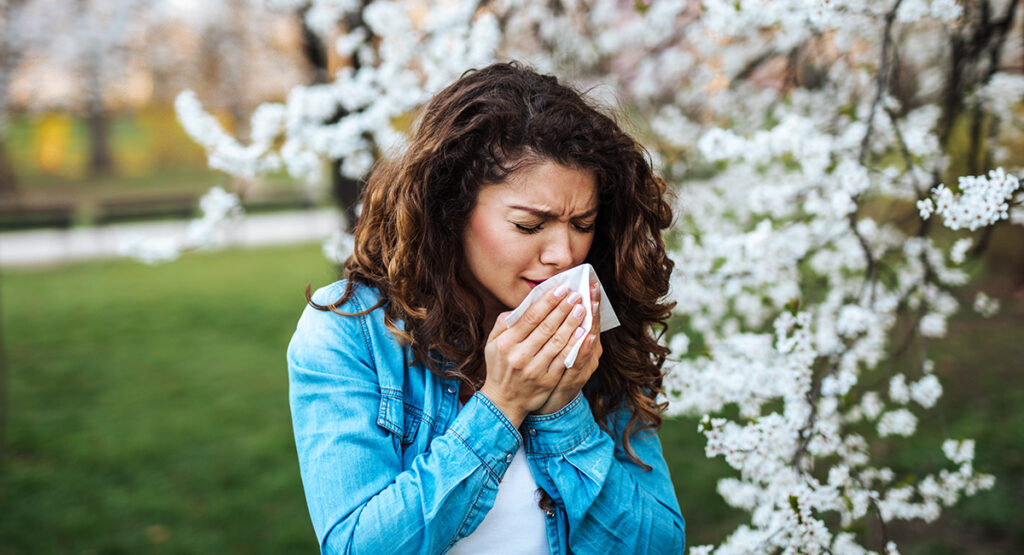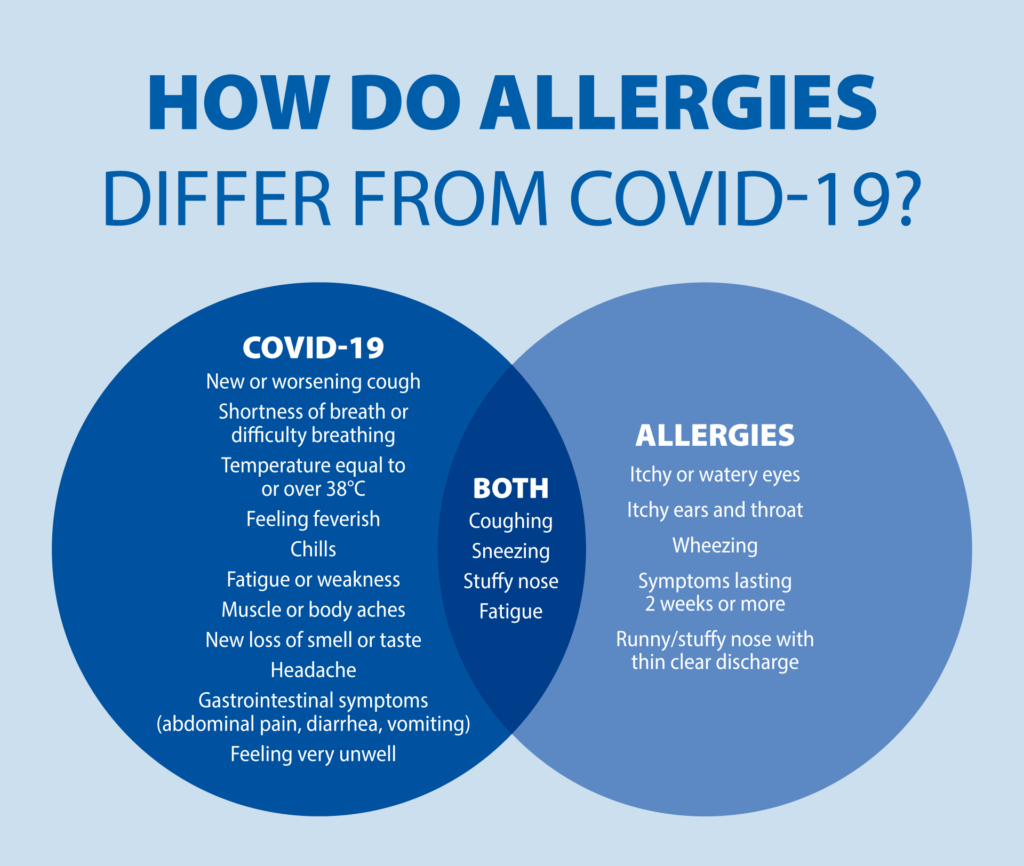Budding blooms, runny noses and itchy eyes are often the tell-tale signs that allergy season has officially arrived. But with this year’s allergy season coinciding with the coronavirus pandemic, it has never been more important for seasonal allergy sufferers to be proactive about symptom management. It is also important to be aware of the difference between seasonal allergy symptoms and those caused by viral infections like the coronavirus or a cold.
Treating Seasonal Allergy Symptoms
While many people think of allergy medication as reactive, allergy sufferers should instead begin taking the medication before experiencing symptoms. Allergy medications can take a few weeks to become fully effective so by taking them proactively, you can save yourself a lot of suffering as the season intensifies.
Treating a variety of allergy symptoms can be a complex process, and it is important to choose the right medications, whether that is antihistamines, decongestants, sinus rinses, nasal sprays, eye drops or a combination. Pharmacists can help you differentiate seasonal allergy symptoms from other health issues, and determine the best treatment to target specific allergens and symptoms.
Allergen avoidance is another way to reduce seasonal allergy symptoms. Our pharmacists encourage allergy sufferers to keep windows shut and run air conditioning to recirculate air. Check daily pollen forecasts and limit outside exposure when pollen counts are at their highest. Consider using a HEPA filter at home to help reduce common allergens in the air such as mold, pollen, animal dander and dust mites.
Seasonal Allergy vs. Coronavirus Symptoms
While a wide variety of symptoms have been reported in connection with coronavirus, the two most common symptoms are a high fever and a cough. Seasonal allergies do not cause fever and, unless you have pre-existing asthma, they do not cause symptoms like shortness of breath. Symptoms more common of seasonal allergies include itchy or watery eyes and sneezing.
Symptoms of COVID-19 vary significantly from person to person. Some people may experience mild symptoms, while others have more severe symptoms. If you develop symptoms of COVID-19, self- isolate immediately, avoid contact with others and get tested for COVID-19.
Seasonal Allergy vs. Cold Symptoms
The similarities between cold symptoms and allergy symptoms can make it difficult to tell which condition to treat. While allergies and the common cold share many symptoms, those who experience seasonal allergies generally suffer from itchy, watery eyes and a runny nose. Symptoms of a cold may include aches and pains, a sore throat, and in some cases a fever and chills, which are not typical of seasonal allergies. A cold will generally only last about a week or two, whereas seasonal allergies will have much longer-lasting symptoms.
Have more questions? Visit the pharmacy at your local London Drugs, where our knowledgeable and experienced pharmacists can help answer any questions you might have about seasonal allergies and symptom management.
If you become ill and think you may have COVID-19, do not visit the pharmacy. Isolate yourself at home. You can access your province’s self-assessment tool at https://ca.thrive.health/covid19/en. Contact your healthcare provider for advice on how to relieve the symptoms.




